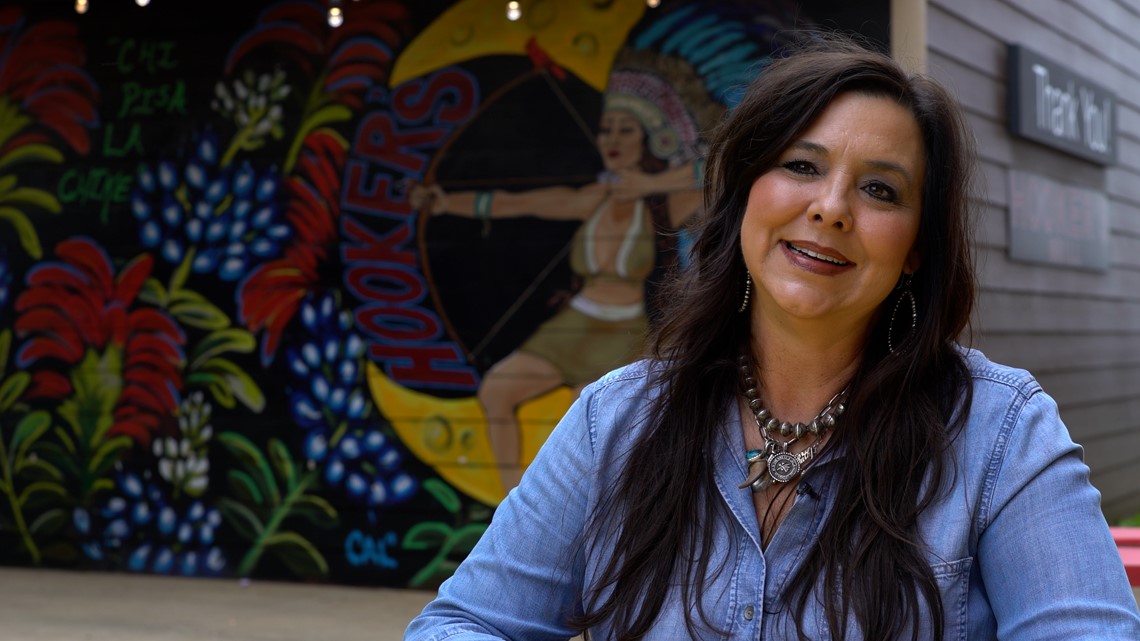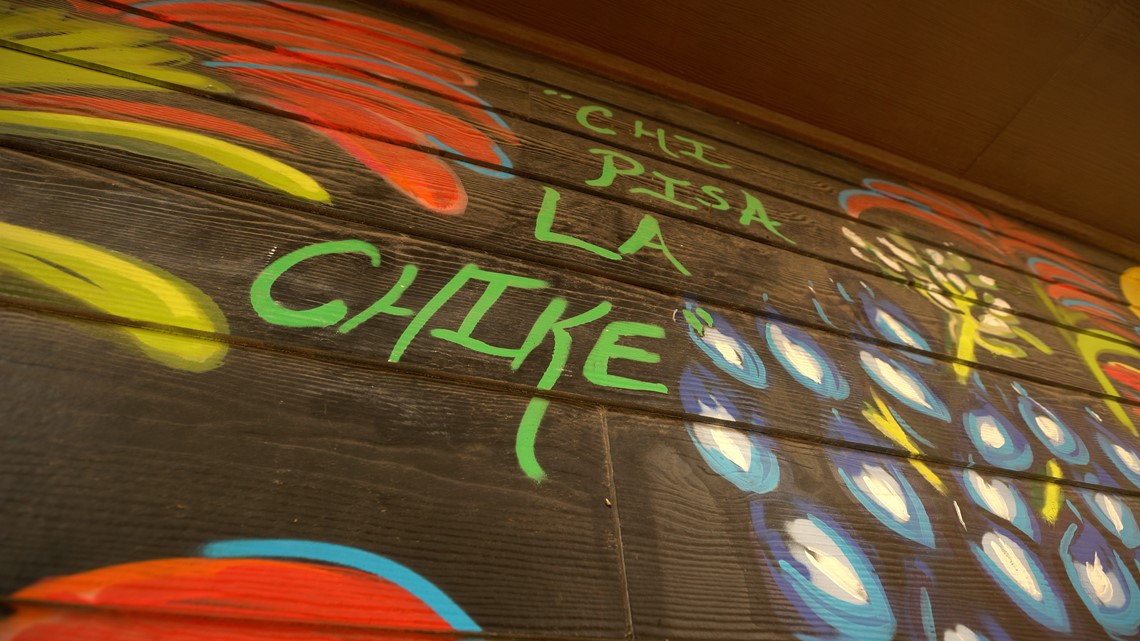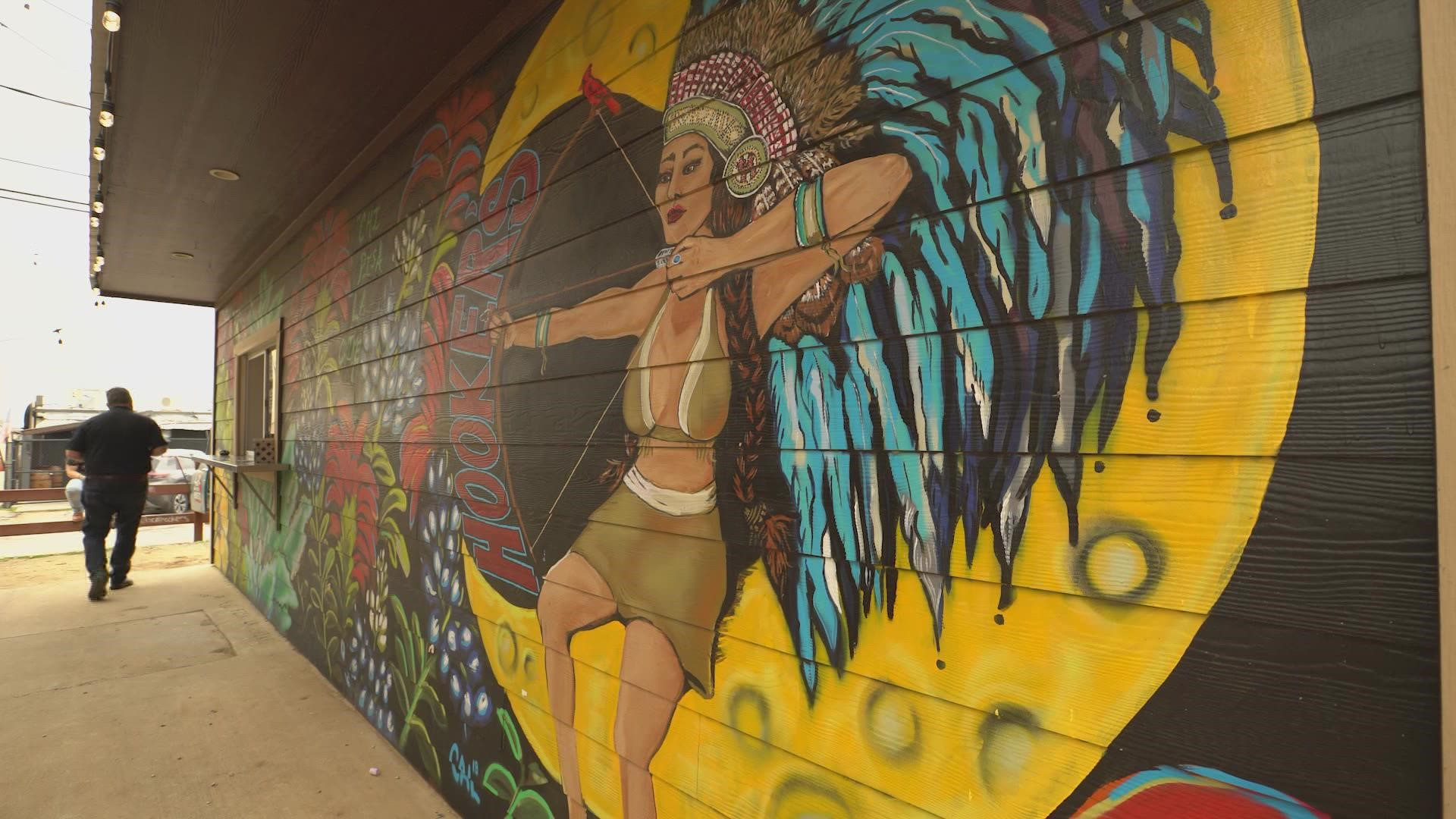FORT WORTH, Texas — North Texas is a blend of cultures and traditions. And on a hill on the west side of the Fort Worth Stockyards, a restaurant owner will gladly share her heritage while, over a delicious meal, searching for the recipe of what we all have in common.
At first glance, the Fort Worth Stockyards is all things cowboy, all things western and the shopping experience that so many in hats and boots would hope to find. But at the corner of West Exchange Avenue and North Houston Street, is a dining experience and a conversation Ruth Hooker would like you to find, as well.
"I love the Stockyards. That's why we're here," the owner of Hooker's Grill said while seated at one of her outdoor picnic tables next to the two-story western facade still in place after the intersection of Exchange and Houston was used for the filming of Yellowstone prequel "1883."
Her walk-up dining location, popular for its fried onion burgers and Indian tacos, also features a mural of a Native American woman sitting on a crescent moon aiming an arrow at her dreams.
"So did you model for the headdress and the bow and arrow," I asked her.
"In my mind," she laughed. "That's my spirit girl."


But to Ruth, who runs the business with her mom, Kathryn, Hooker's Grill is more than just a restaurant. It's also where she can celebrate and share who she is and where she came from.
"You can't really do anything that matters in your future if you don't have some acknowledgement of the past," Hooker said.
Ruth and her mom are Choctaw -- heritage that winds its way through southeast Oklahoma and the Trail of Tears that forced her people there from Mississippi.
"It's a huge part of my identity. It is how I see myself," she said.
But she says her great-grandfather, George Davenport, an original code talker from World War I, didn't want to speak Choctaw after the war, convinced he was now living in a white man's world.


"He really denied a very important part of not just his past, but the past of our country. He denied the language that was his own but also helped his entire country to win a war," Hooker said. "Isn't that really something that he felt that way about it?"
So Ruth, in contrast, is always talking, sharing the pride she feels in her heritage and connecting with the pride you might feel in your own.
"I wear this every day just as a gentle reminder," she said showing the Native American medallions she wears around her neck. "We all have a struggle. We all have to overcome. And you have to have some way to remind yourself. And this is my way."
And good food? That's just a delicious bridge to the conversations she and her customers share.
"The restaurant, and the Indian tacos, and just fry bread, is really an introduction into conversation, with people that may not know otherwise," she said. "It's a thing that continues to give us a sense of pride to celebrate our culture that way. And it's really beautiful to watch and I love that I get to see it first-hand."
The food is considered some of the best in Fort Worth. In fact, in the book "100 Things To Do In Fort Worth Before You Die" -- there's Hooker's Grill at No. 3!
But at a building that also includes a mural of her rodeo cowboy dad, Ruth hopes you come for the food and stay for the conversation about her culture and yours.
"When you're here I don't think anybody cares what you are. And that's my point," she said. "I think when you're down here I think you're just you. Whatever that is."
And whoever you are, she hopes you learn the Choctaw phrase written on that mural on the restaurant wall.


"It's 'chi pisa la chike.' And it means 'until we meet again,'" she said. "We just feel like this is a circle. It doesn't end. "
An on a hill in the Fort Worth Stockyards, she is ready to keep that circle -- and her own heritage -- deliciously alive.

